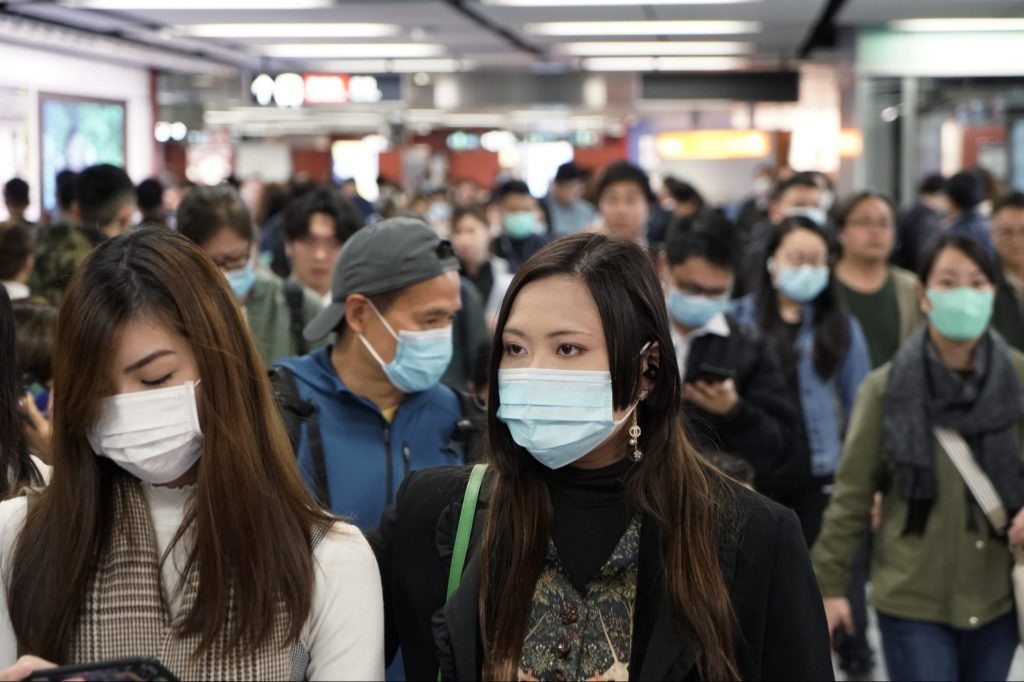Skift Take
The coronavirus threat has given rise to a cloud of anti-Chinese discrimination. A virus outbreak is not an occasion for xenophobia or prejudice but a time for the tourism sector to work in solidarity to overcome the crisis. After all, viruses respect no borders or nationalities.
As the outbreak of the new coronavirus spreads to more than 15 countries worldwide, China’s ability to contain the epidemic is coming under increasing scrutiny. But growing in tandem with the virus spread are louder calls to impose greater travel restrictions on Chinese nationals in order to curb the spread of coronavirus, and that has come to the attention of travel industry leaders in the region.
Such reactions in Asia are not surprising though, said Mario Hardy, CEO of Pacific Asia Travel Association. “I think people are generally concerned and worried, especially those who have experienced SARS,” he explained.
The SARS (severe acute respiratory syndrome) epidemic, which swept across Asia in 2003, still lingers fresh for many people. The virus killed 774 people worldwide in 17 countries, causing widespread fear and severely curtailing travel in Asia.
For now, China has taken the unprecedented move of sealing Wuhan, the epicenter of the new coronavirus outbreak, while halting group tours and urging its citizens to put off overseas travel for the time being. Such drastic measures have already taken a toll on inbound tourism in Asian destinations, for which China is a dominant visitor source market.
Major airports worldwide are screening for coronavirus to prevent the entry of the virus, while airlines are either suspending or cutting down on services in and out of China. Many countries in Asia are temporarily restricting the entry of Chinese nationals from Wuhan and the surrounding areas in China’s Hubei province.
But as the contagion continues spreading to new shores and the death toll climbs above 100, worries are mounting among Asia’s populace, spurring a spate of online petitions, from Singapore to Malaysia to Korea, to urge governments to close country borders to Chinese travelers. That tourism dollars are being prioritized over public health was the rallying cry for the petitioners.
Medical practitioners and travel industry players, however, have expressed their doubts over the effectiveness of blanket travel bans in curbing the spread of the Wuhan virus, given how interconnected the world is now.
“A ban is totally not realistic, it’s a bit like Trump building the wall,” Bill Barnett, founder and managing director of Phuket-based C9 Hotelworks, said. “The Chinese have banned overseas tour groups and airline services to from Wuhan are contained. The Philippines is the only one I am aware of who has banned Chinese but it’s only a matter of time before the virus shows up there.”
While the fear of contracting the virus is a valid concern, Barnett stressed the importance of “prevention and monitoring” as “life goes on” during a pandemic.
Uzaidi Udanis, president of the Malaysia Inbound Tour Association, believes that a blanket ban is “unnecessary”, as the screening measures that the Malaysian authorities have implemented at the country’s airports and borders are suffice for now. Visas have been suspended for Chinese nationals from Wuhan, while tour guides have also been trained to spot signs of travelers with coronavirus and refer them to the hospitals, added the association chief.
Hardy agreed, “A complete ban [of Chinese travelers] might be too extreme at this stage. Taking proper precautions, like wearing face masks and use of sanitizers, are a more reasonable approach on how travelers can limit the virus spread.”
Furthermore, Asia’s travel industry members are also concerned that a blanket ban on Chinese travelers, if put into place, would fuel pandemic panic and stoke stronger anti-Chinese sentiments on the ground.
Hardy, who in recent days has witnessed episodes of public castigations of Chinese tourists amid the coronavirus scare, is urging “decency and respect” among Asia’s traveling public. He also cautioned industry stakeholders against relying on social media or unreliable sources for updates, and instead seek information from reputable sources such as the World Health Organization to measure an appropriate response.
Putra Mosque, a popular attraction in Malaysia’s Putrajaya, had closed its doors to China tourists, a move that has earned a strong rebuke from Malaysia Inbound Tour Association, according to Uzaidi. “We don’t discriminate against Chinese tourists. If they have been screened and proven healthy, there’s no need to stop them from traveling in Malaysia,” he stressed. “Likewise, there’s no need for attractions and product operators to press the panic button.”
For now, tackling any outward signs of discrimination by Malaysian attractions and operators against Chinese travelers is among his most urgent tasks, said Uzaidi. The association chief also revealed that he is currently in talks with the Malaysian Ministry of Tourism, Arts and Culture to set up a tourism recovery action committee to minimize negative fallouts on the tourism sector, including lending a helping hand to tour operators — a majority of which are small- and medium-sized enterprises — as well as Chinese tourists currently stranded in Malaysia.
“Sooner or later the crisis will be over,” said Uzaidi. “But right now we want to make sure that Chinese tourists visiting Malaysia are comfortable and can go around the country without prejudice or discrimination.
“We don’t abandon China during crisis, and go to them only when we want their tourists,” Uzaidi remarked. “The people-to-people economy is very important to us. In times like this, we’re with them [China].”
The Daily Newsletter
Our daily coverage of the global travel industry. Written by editors and analysts from across Skift’s brands.
Have a confidential tip for Skift? Get in touch
Tags: asia, coronavirus, travel bans
Photo credit: Xenophobia is spreading across Asia as the public debates priorities and the effectiveness of travel bans. Associated Press
